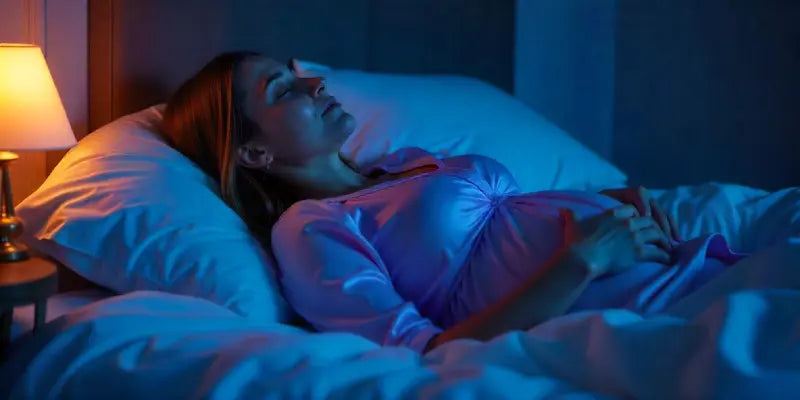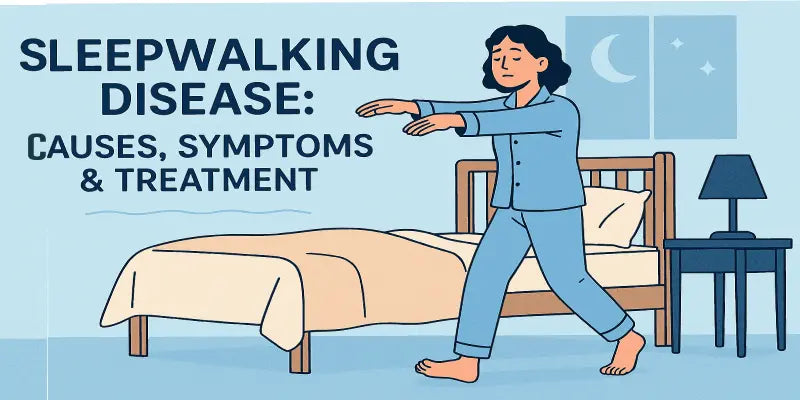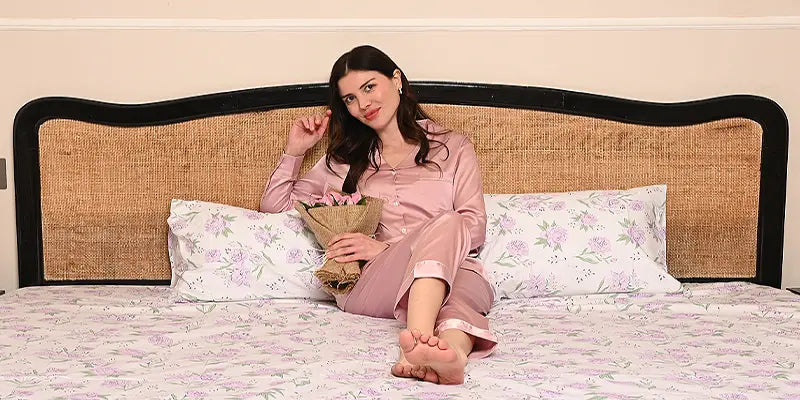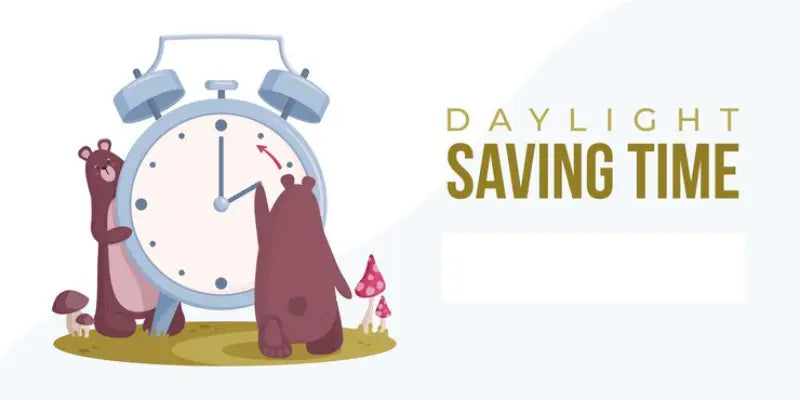
Excessive Sleepiness: Causes, Symptoms, Managing and Treatment
You have slept for a full night, but still you find it hard to stay awake during the day. You may be experiencing excessive sleepiness. Excessive sleepiness also known as hypersomnia is a condition that affects millions of people around the world. It’s more than just feeling a little tired; it’s a constant and overwhelming urge to sleep, no matter how much rest you get.
In this blog, we’ll explore the causes, symptoms, and how to manage and treat excessive sleepiness so you can start feeling more alert and energized.
What is Excessive Sleepiness?
Excessive sleepiness is defined as feeling excessively tired or having a strong desire to sleep during the day, even after a full night's rest. It can disrupt your daily routines, relationships, and general quality of life. While everyone experiences tiredness at times, persistent sleepiness during the day may signal an underlying health condition.
Excessive drowsiness may have different meanings for different people. In general, it may entail sleeping longer hours than usual and feeling tired most of the time. You may feel weary or drowsy, or your eyes may be fatigued and require frequent closures. You may be taking more naps and yet feel sleepy when you wake up.
Unlike fatigue, which is primarily about low energy, excessive drowsiness can interfere with your school, employment, relationships, and daily functioning. You may feel distracted and disoriented throughout the day, as you do when you first wake up.
Causes of Excessive Sleepiness
There are many factors that lead to excessive sleepiness, including:
Sleep Disorders
Sleeping Disorders are one of the leading causes of excessive daytime sleepiness. This includes:
- Sleep Apnea: Sleep apnea is a potentially serious condition in which you stop and start breathing frequently throughout the night. It may cause you to feel tired during the daytime.
- Narcolepsy: Narcolepsy is a neurological disease that produces involuntary spells of sleep. With narcolepsy, the brain fails to control the sleep-wake cycle effectively. During relaxation, a person with narcolepsy may wake up several times.
- Insomnia: Difficulty falling or staying asleep, leading to inadequate rest at night.
Poor Sleep Hygiene
Irregular sleep patterns, working late at night, or a lack of sleep can all lead to sleep loss, resulting in daytime tiredness. Excessive use of electronic devices at night or drinking coffee in the evening can also affect sleep quality.
Lifestyle Factors
- Stress and Anxiety: Mental health issues can significantly affect sleep patterns, leading to increased fatigue.
- Diet: Poor eating habits, such as eating large meals or sugary snacks before bedtime, might affect sleep patterns.
- Sedentary Lifestyle: Not being physically active during the day can contribute to feeling overly tired or lethargic.
Medical Conditions
Excessive sleepiness can sometimes be a symptom of other health conditions, including:
- Depression: Persistent sadness and fatigue can make it harder to stay awake during the day.
- Hypothyroidism: Low thyroid hormone levels can produce exhaustion, even when you're sleeping.
- Chronic Fatigue Syndrome (CFS): Chronic Fatigue Syndrome (CFS) causes persistent, unexplained fatigue that does not improve with rest.
Medications
This type of side effect can occur with medicines such as antihistamines, antidepressants, and sedatives. They cause patients to feel fatigued throughout the day, which can have a substantial impact on one's life if taken for an extended period of time.
Also Read:- Dyspnea - Causes, Symptoms, Diagnosis and Treatment
Symptoms of Excessive Sleepiness
Excessive drowsiness is not always simple to detect immediately once, as it might be confused with general exhaustion or a lack of rest. People who are excessively sleepy may observe the following:
- Chronic fatigue syndrome
- Mental Fog
- Grogginess
- Sluggishness
- Incapacity to Focus
Excessive drowsiness may also result in:
- Difficulties waking up or getting out of bed in the morning
- Feeling sluggish and unmotivated during the day
- Frequent napping
- Falling asleep at inappropriate moments including while driving or eating
- Lapses in focus and loss of appetite
- Difficulties recalling daily events, difficulty concentrating, and irritation
- Poor performance at job or school
If an individual's extreme sleepiness is caused by an underlying medical issue, they may experience additional symptoms.
Managing Excessive Sleepiness
While managing excessive sleepiness can be challenging, several lifestyle changes and strategies can help you feel more alert and awake during the day:
Improve Sleep Hygiene
Good sleep hygiene is essential for quality rest. Here are some tips to help:
- Stick to a Consistent Sleep Schedule: Go to bed and wake up at the same time every day, even on weekends.
- Create a Relaxing Bedtime Routine: Wind down before bed with calming activities, such as reading, meditation, or taking a warm bath.
- Limit Screen Time: Avoid using phones, tablets, or computers at least an hour before bed to reduce blue light exposure.
- Create an Optimal Sleep Environment: Keep your bedroom cool, dark, and quiet to help you sleep better.
Exercise Regularly
Regular physical activity can improve sleep quality and increase daytime alertness. Aim for at least 30 minutes of moderate exercise most days of the week. However, try to avoid vigorous exercise close to bedtime, as it can interfere with sleep.
Manage Stress
Stress and anxiety can worsen sleep problems. Practice relaxation techniques like deep breathing, mindfulness, or yoga to reduce stress levels and promote better sleep.
Limit Stimulants and Alcohol
Avoid consuming caffeine or nicotine late in the day, as they can keep you awake at night. Similarly, while alcohol may help you fall asleep initially, it disrupts sleep cycles and can lead to poor-quality rest.
Treatment for Excessive Sleepiness
If lifestyle changes alone don't resolve excessive sleepiness, medical intervention may be necessary.
Here are some treatment options:
Medications
Medications like modafinil or amphetamines can help improve alertness in people with conditions like narcolepsy or sleep apnea. If your excessive daytime sleepiness is related to depression or anxiety, antidepressants may be prescribed to help improve mood and energy levels. If sleep apnea is the cause, a Continuous Positive Airway Pressure (CPAP) machine can help keep your airways open during sleep.
Cognitive Behavioral Therapy (CBT)
CBT for insomnia (CBT-I) is a structured program designed to help you address the thoughts and behaviors that interfere with sleep. This type of therapy can be effective for people with sleep disorders or poor sleep hygiene.
Behavioral Therapies
For conditions like narcolepsy disorder, sleep specialists may suggest behavioral treatments that focus on managing the sleep-wake cycle, including scheduled naps and planned wakefulness techniques.
If your excessive sleepiness is interfering with your daily life or has lasted for several weeks, it’s time to consult a healthcare professional. A doctor can help diagnose any underlying conditions and work with you to create a personalized treatment plan.
Conclusion
Excessive sleepiness is more than just feeling a little tired, it can be a sign of an underlying health issue or lifestyle imbalance. By understanding the causes, symptoms, and treatments available, you can take steps toward managing this condition and improving your overall well-being. Whether it’s making simple adjustments to your daily routine or seeking professional treatment, taking action can help you feel more alert, energized, and ready to tackle your day with enthusiasm.








